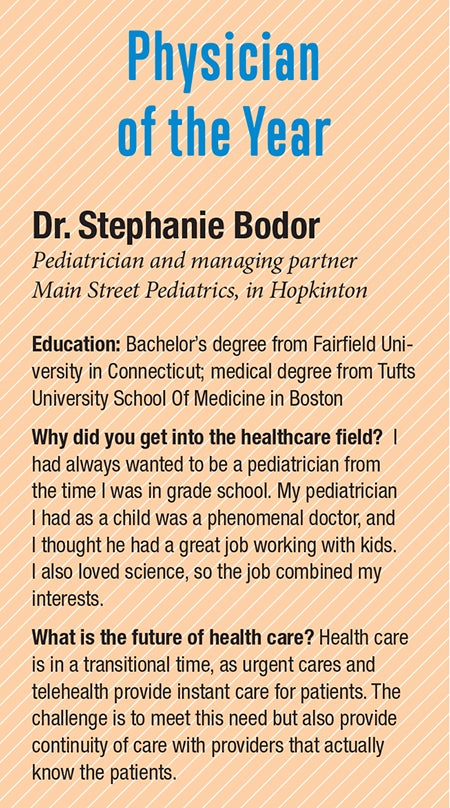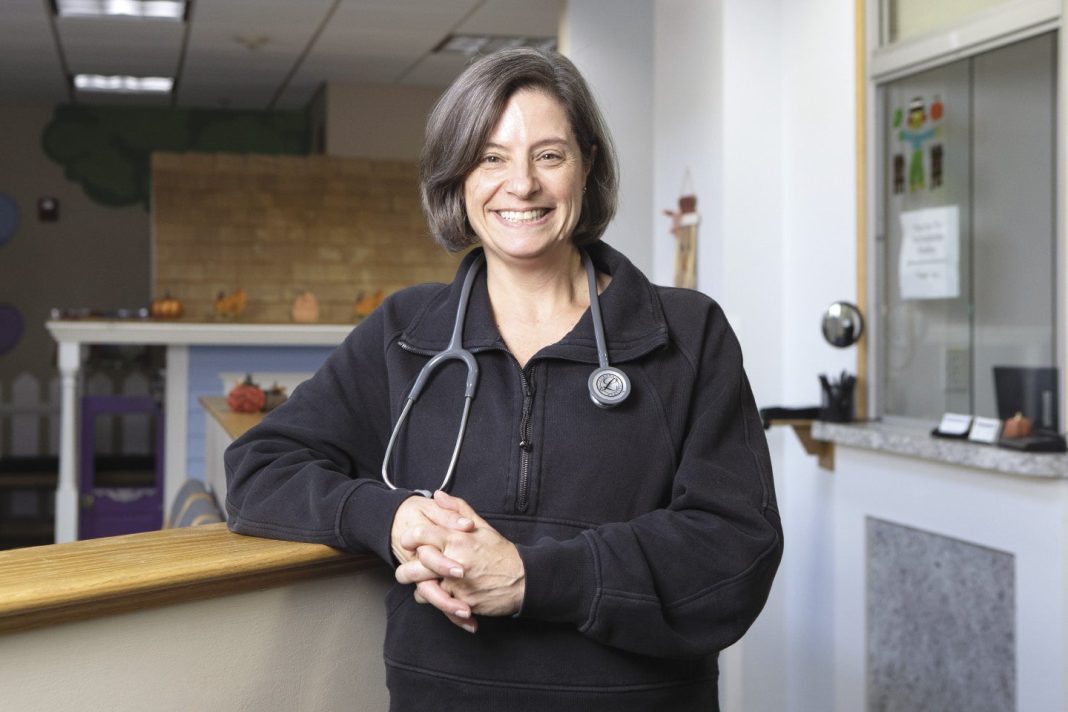When Dr. Stephanie Bodor heard doctors in Central Massachusetts were organizing themselves to help people harmed by the War in Ukraine, she jumped at the chance.
“I thought to myself, ‘This is a unique opportunity,’” she said. “I really felt like I wanted to do something and contribute.”
So, in spite of her busy day job as managing partner of Main Street Pediatrics in Hopkinton, Bodor signed up to help. In January, Bodor took a 24-hour trip to the Polish town of Zatwarnica, near the Ukrainian border, where she spent a week subbing in for another doctor, caring for refugees from the conflict.
“She just kind of announced one day that it was something she wanted to do and off she went,” said Robert Basow, another partner in the pediatric practice. “She’s a cool person.”

Bodor has been jumping into new opportunities for her whole career. Becoming a pediatrician was her lifelong dream, sparked around third grade by her appreciation of her own doctor. That path took her to medical school at Tufts University in Boston, and from there to the practice in Hopkinton. “It’s really fulfilling to take care of sick kids,” she said. “There’s something kind of unique and special to being able to do that.”
After more than 20 years at the practice, Bodor is proud she’s now taking care of grandpatients, the children of patients she cared for when they were young. She’s taken on new responsibilities since becoming managing partner about a decade ago, a job she got by gradually taking on the work of running the business side of things.
In that capacity, Bodor has faced a changing environment in health care. Just before the start of the COVID pandemic, the practice began offering some walk-in hours, helping it compete with retail clinics offering convenient treatment for common medical issues.
When COVID hit, Bodor led the practice in creating an urgent care clinic with a separate entrance. This meant sick kids could get treatment away from the space where babies and other children received their regular checkups. It simplified the workflow for the practice’s staff, allowing parents to just call and put their names on the waiting list, rather than setting up individual appointments.
“That’s been incredibly successful,” Basow said. “Patients really like it. It’s been good for the practice.”
Another change Bodor and her colleagues are responding to is the rising demand for mental health support among young people, particularly after COVID disrupted their schooling.
“The lack of social interaction was hard for kids,” she said. “It’s kind of settled down a little bit now, but you see little kids still adjusting.”
To help with kids’ mental health, the practice hired two social workers who can provide six to eight sessions of care, as well as a medical home coordinator who helps parents find outside services.
As for Bodor’s work in Ukraine, it came about after she learned about the efforts of Brian Lisse, a retired doctor living in Hudson who was recruiting other medical professionals to help in the conflict. Unlike many other volunteer opportunities, Lisse was connecting people for short stints in the region.
During her week in Poland, Bodor lived and worked in an old hotel a priest had converted to a refugee clinic. Working with a translator, she saw patients whose regular medical routines were disrupted when they fled Ukraine. Women staying at the clinic cooked homemade meals three times a day, and everyone ate together, allowing her to get to know them.
Bodor recalls one woman who came in frequently for blood pressure checks. The doctor learned this was related to the fact when a bombing occurred, it took 48 hours for people to find out what area had been hit, so she didn’t know whether it was near her son. The woman became friendly with Bodor, teaching her some Ukrainian words and insisting she drink tomato juice with breakfast in the Ukrainian style.
“It’s one of the best things I’ve done,” Bodor said. “I really loved it.”

